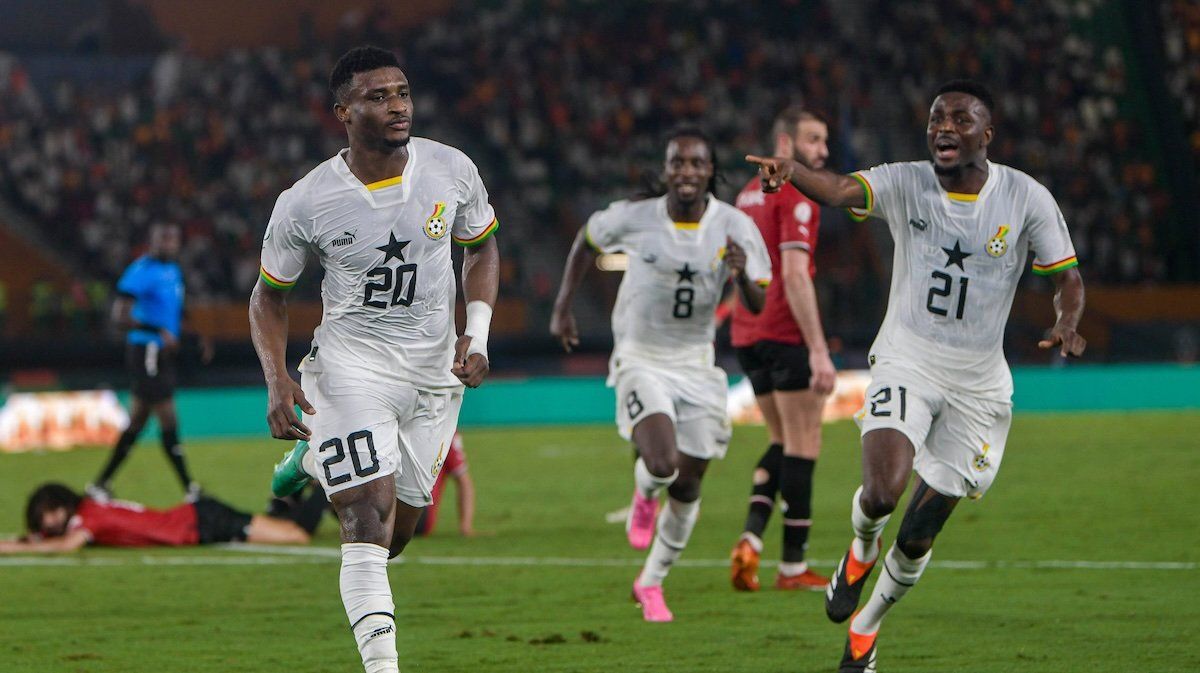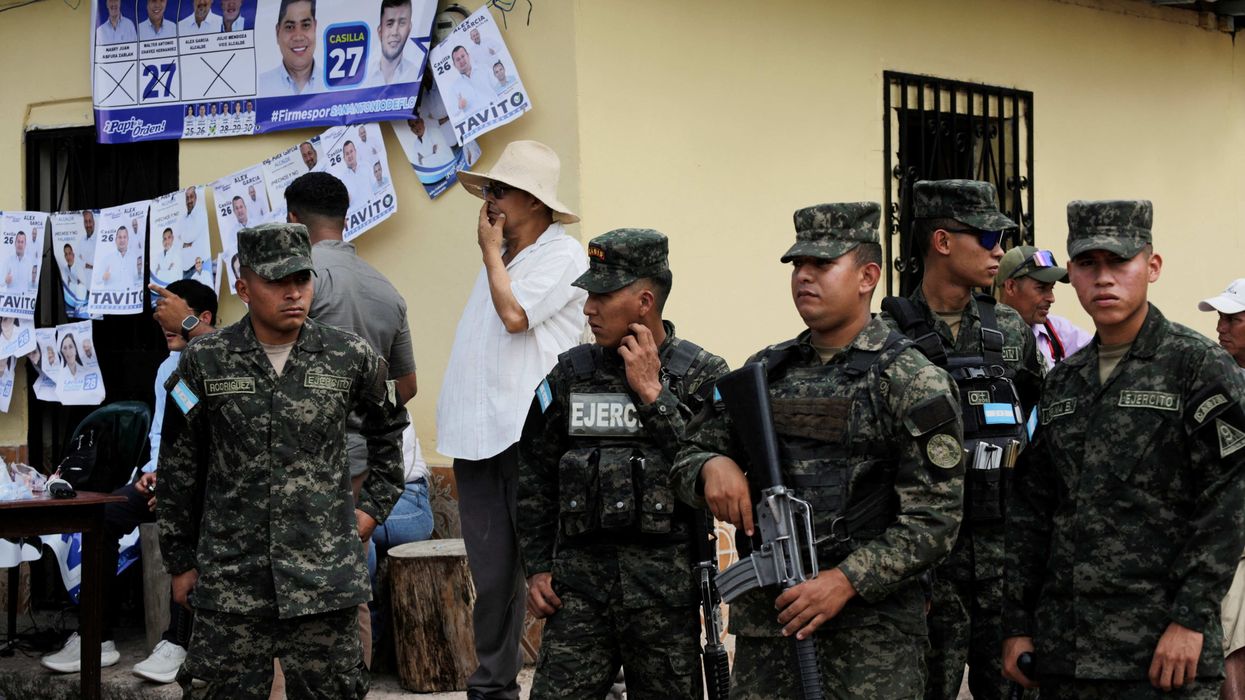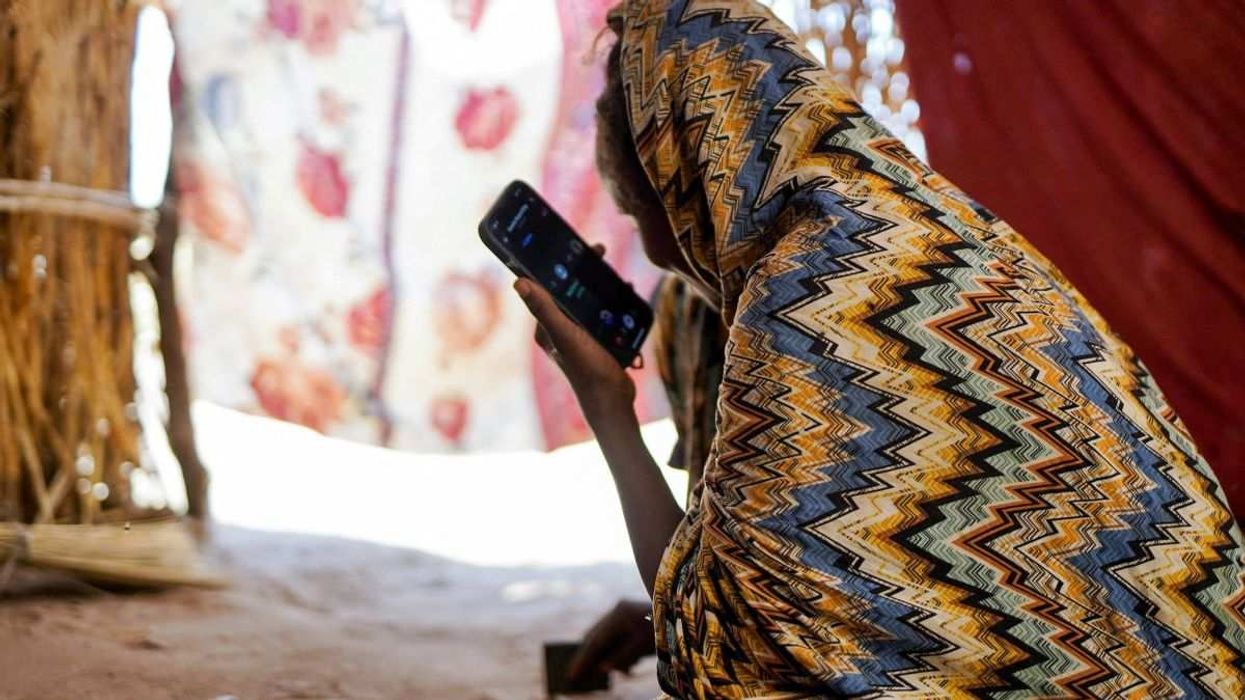The Africa Cup of Nations is underway in Ivory Coast, with the gut-churning knockout stage set to begin on Saturday. The month-long continental soccer tournament happens every two years and recently expanded to accommodate 24 national teams – all of which began the competition hoping to prove they’re the best squad on a continent of 1.4 billion people. We have compiled a list of what you should know about this tournament, including the political backdrop of the event.
1. From the pitch to peace
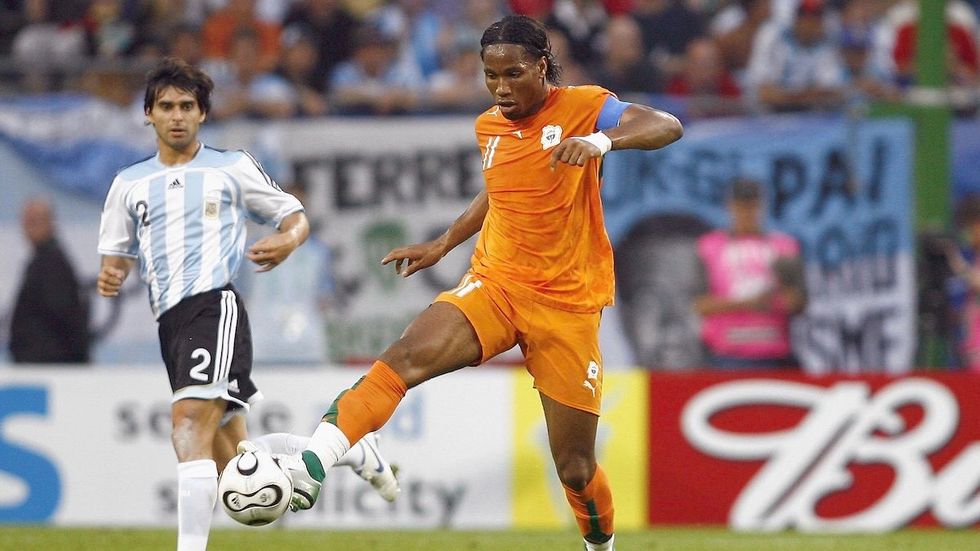
Argentina's Roberto Ayala and Ivory Coast's Didier Drogba during the World Cup in Hamburg, Germany, on June 10, 2006.
Christian Liewig/Reuters
Soccer has played an important role in Ivory Coast’s recent history. In 2005, the country’s national team – particularly international superstar Didier Drogba – helped stop a bloody civil war that began in the West African country three years earlier. Right after Les Éléphants defeated Sudan and qualified for the World Cup for the first time, Drogba issued an emotional call for the warring parties to lay down their weapons for the sake of the country. Drogba’s speech was blasted across the airwaves and ultimately helped lead to a cease-fire.
2. China’s stadium diplomacy
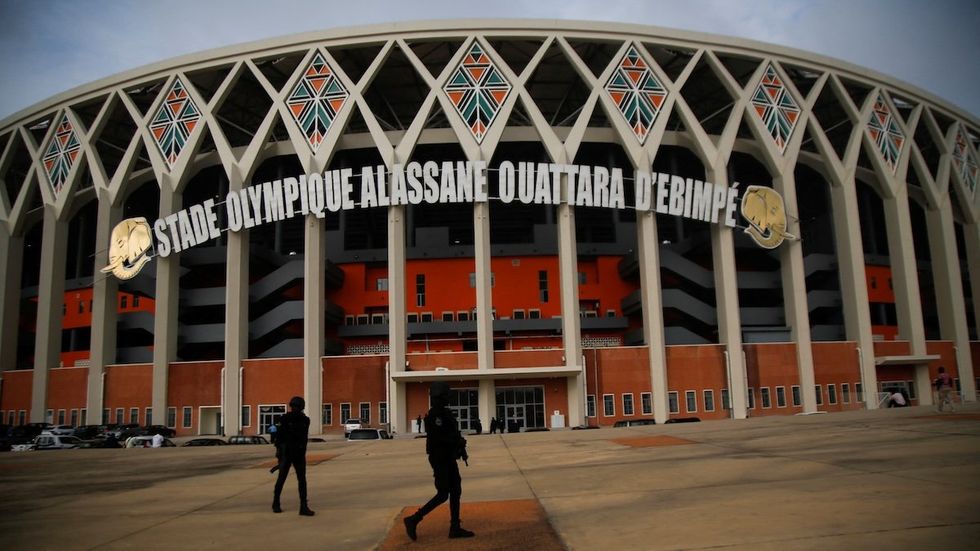
Security forces officers stand guard in front of the Alassane Ouattara Olympic Stadium of Ebimpe in Abidjan, Ivory Coast, on July 11, 2023
REUTERS/Luc Gnago
Three out of six stadiums used for the tournament across Ivory Coast were either built or designed by China, highlighting Beijing’s efforts to expand its influence in Africa through infrastructure projects tied to its Belt and Road Initiative. The Stade Alassane Ouattara Ebimpe, where the final of the tournament will be played on Feb. 11, was built by the Chinese state-owned Beijing Construction Engineering Group.
3. Eyes on the prize money
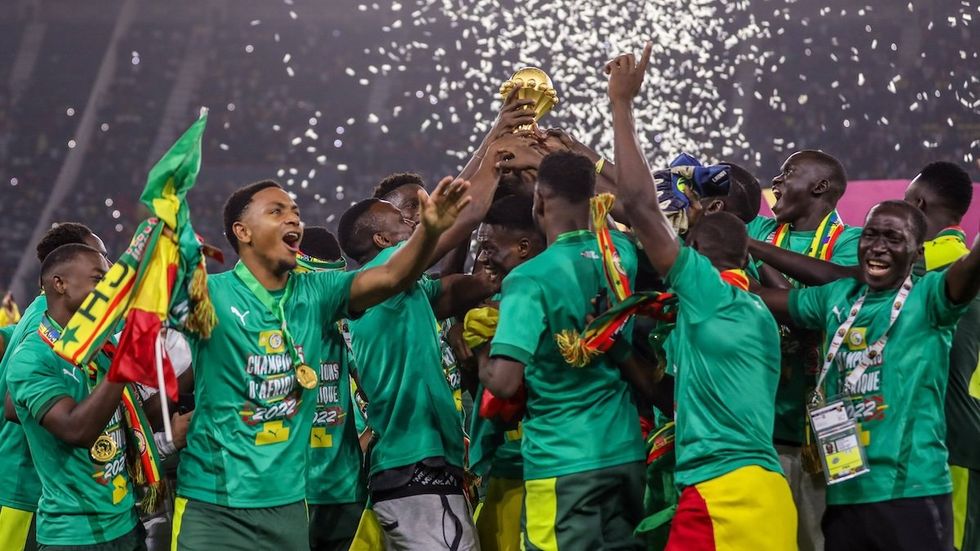
Senegal's national team celebrates after winning AFCON in Feb. 2022.
REUTERS
The winners of AFCON will receive a $7 million prize, which is a 40% increase from what Senegal received when it won the cup two years ago. But it’s still far below what was raked in by the victors of other recent major tournaments. Argentina, for example, received a $42 million prize for winning the World Cup in Qatar in 2022. And all of the teams playing in this year’s UEFA European Championship get over $9 million each – just for taking part.
4. Near-empty stadiums, full-on scandal
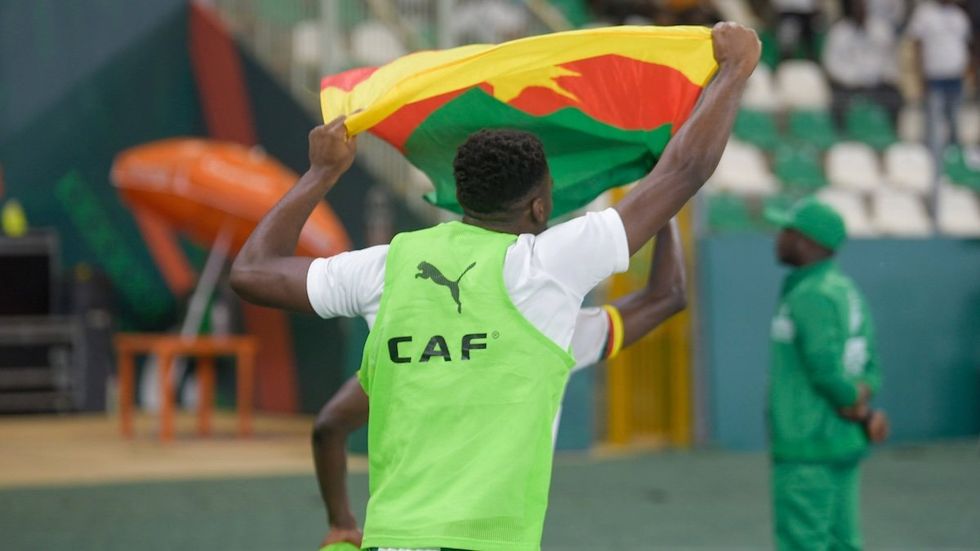
Cameroon during the TotalEnergies Caf Africa Cup of Nations Afcon 2023 match between Gambia and Cameroon at Stade De La Paix on January 23, 2024 in Bouake, Cote d Ivoire.
Didier Lefa/REUTERS
Before the tournament, the African soccer governing body CAF announced staggering numbers of ticket sales to whet the appetites of fans and to show sponsors how viable their flagship product was. But when the tournament kicked off and games were played in almost empty stadiums, people started questioning those numbers. Fans found tickets hard to purchase, and allegations of black market activities swirled across social media — a claim the scandal-plagued CAF has since denied. It attributed the setback to a “printing issue” due to a spike in orders at the last minute.
5. Broadcast battle
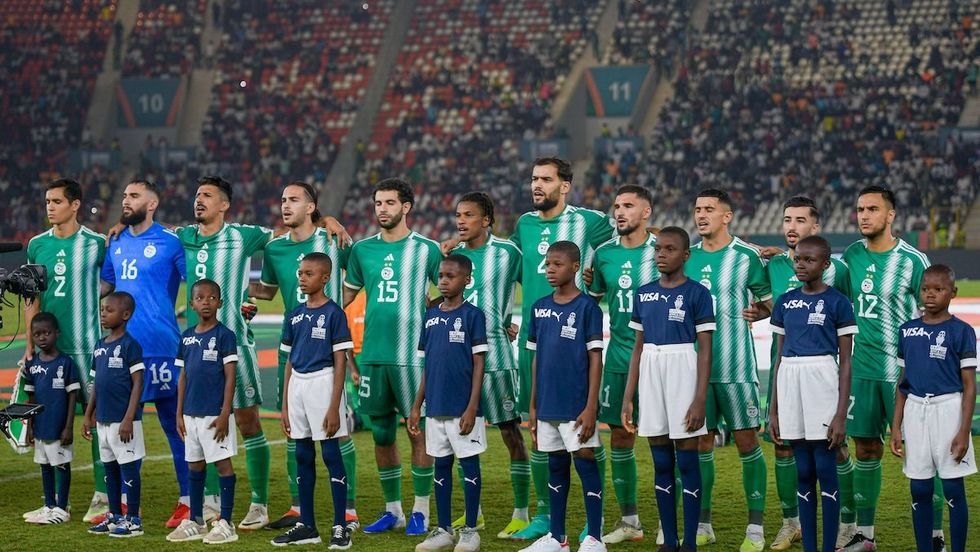
Algeria during the Africa Cup of Nations match between Mauritania and Algeria at Stade De La Paix on January 23, 2024 in Bouake, Cote d Ivoire.
Didier Lefa/Reuters
Just before the tournament began, fans faced the possibility they might miss the highly anticipated event altogether. Africa's largest pay-TV company, MultiChoice, withdrew from an agreement to broadcast the competition to over 20 million subscribers. New World TV, a relatively unknown broadcaster headquartered in Togo, initially outbid the South African company for the rights. They subsequently managed licensing for other broadcasters but couldn’t reach a deal with their South African counterpart. Ultimately, all parties involved hurried to secure a MultiChoice deal just three days before the opening game.
6. Give or take a year
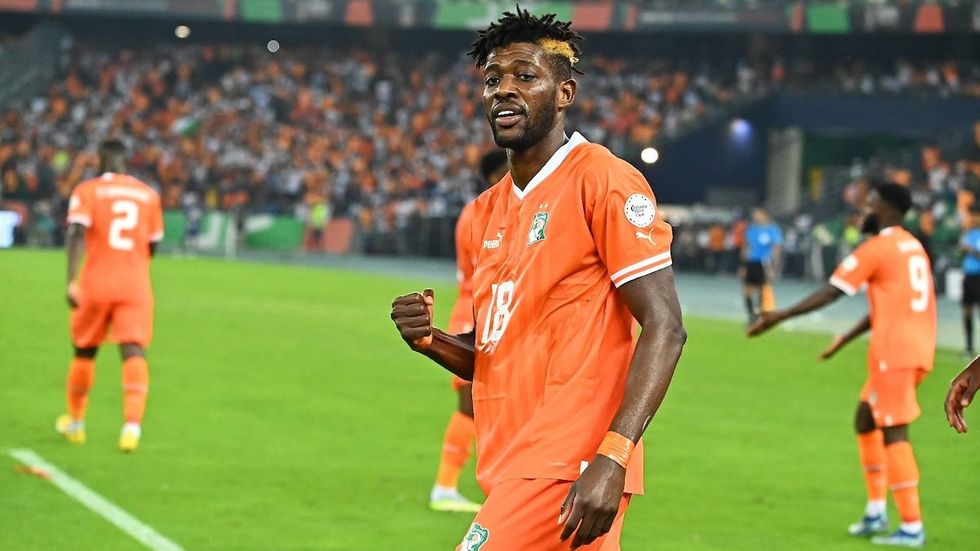
January 13, 2024. AFCON 2023, Ibrahim Sangare, Ivory Coast vs Guinea Bissau, at the Stade Olympique Alhassane Ouattara, Abidjan, Cote D Ivoire
Ebenezer Amoakoh/Reuters
Why is it called AFCON 2023 when it’s 2024? Since 2019, the competition has been planned for the summer to ease scheduling conflicts with the European soccer calendar, where Africa’s biggest stars ply their trades. Planned for the 2023 summer, the competition was postponed in July 2022 due to concerns about weather in Ivory Coast, which promised a torrent of downpours during the Northern Hemisphere’s summer — which even the newly designed Chinese stadiums couldn’t handle. Rather than change its name to AFCON 2024, the initial iteration was maintained for sponsorship purposes. This was also the case with the previous edition, AFCON 2021, which was held in 2022 in Cameroon.
7. Chaos undoes predictions
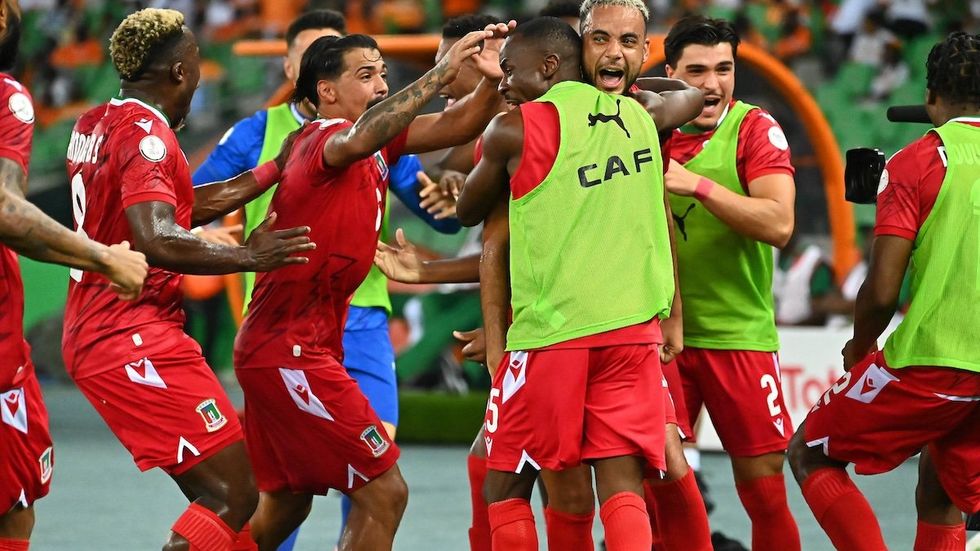
January 22, 2024. AFCON 2023, Pablo Ganet celebrates his goal in the final round of group stage match between Equatorial Guinea vs Ivory Coast, Stade Olympique Alhassane Ouattara, Abidjan, Cote D Ivoire.
Ebenezer Amoakoh
The AFCON defies logic. It is pure chaos. Once the competition commences, most pre-tournament punditry/projections become irrelevant. Ivory Coast, an African football heavyweight and the tournament host, faced the prospect of an early exit after being humiliated by Equatorial Guinea, a country led by a 34-year-old who plays in Spain’s lower league. Ghana is out. Tournament record winner Egypt pulled out all the stops to progress to the knockout stage. 2019 champs Algeria finished bottom of its group after a string of embarrassing results, compounded by a loss to Mauritania — which had never won a game at the competition and is ranked 105th best soccer team in the world. True to tradition, the tournament continues to humble giants.
8. White Elephant project?
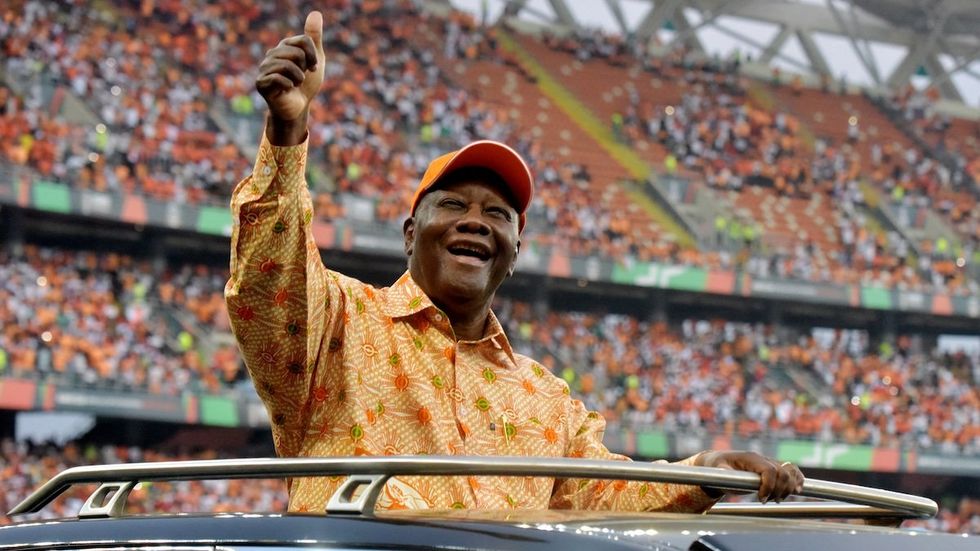
Ivory Coast President Alassane Ouattara during the AFCON opening ceremony.
REUTERS/Stringer
Ivory Coast President Alassane Ouattara seems to have borrowed from the African dictator's playbook: hosting a big, popular sporting event to try to launder his undemocratic image. Ouattara, who is winding down a controversial third-term presidency, knows a thing or two about being autocratic, though it is unclear whether the 82-year-old will try to tighten his grip on power in 2025. But at least through CAF, he’s given Ivorians palpable joy and pride in exchange for popularity. He even grabbed Washington’s attention: Sec. of State Antony Blinken attended one of the games this week as America’s top diplomat was touring the region to hawk America’s soft power.
9. Questionably ‘energizing’ soccer
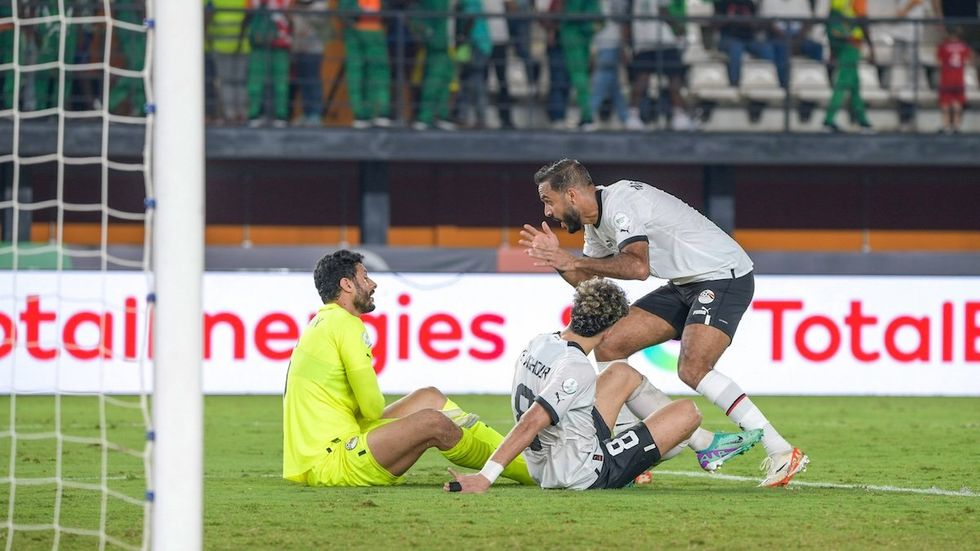
The Africa Cup of Nations match between Cape Verde and Egypt at Stade Felix Houphouet-Boigny on January 22, 2024 in Abidjan, Cote d Ivore.
Didier Lefa/Reuters
Global brands are also notorious for using huge sporting events to whitewash their images, and the AFCON is no different. French oil and gas giant TotalEnergies, controversial for its dealing on the continent, has been the title sponsor of CAF’s flagship competition (and its other tournaments) since 2016.
Interestingly, it still retains this position even as African leaders are increasingly taking a prominent role in the global climate conversation, an issue with severe implications for the continent's 1.4 billion people. What a time to have a global oil giant dominate pitch-side advertising boards and maintain a ubiquitous presence across its endless social media posts to millions of fans.
